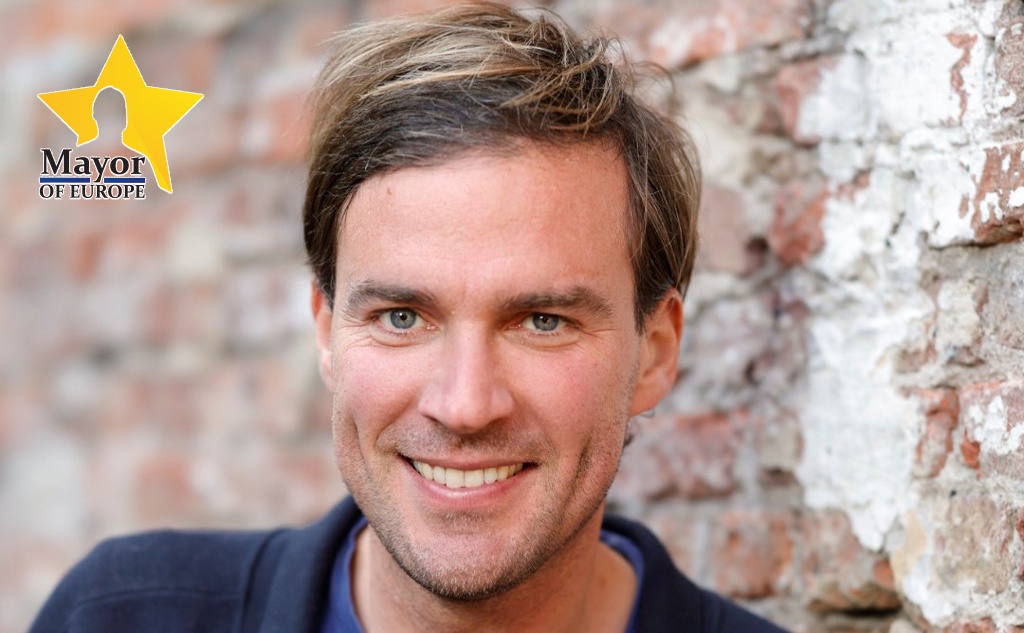Thessaloniki gets ready for its metro launch in November
The underground rapid transit lines have been under construction for almost two decades due to various project delays
 TheMayor.EU logo
TheMayor.EU logo 






Mathias De Clercq, Mayor of Ghent, Belgium is Mayor of Europe for December 2022 for Youth policy.
Image: Stad Gent
The voice of children and youngsters is heard in all the choices and decisions the city takes
Mathias De Clercq has been involved in politics from a very early age. He ran in the Ghent municipal elections in 2006, when he was only 25 years old. He has studied law. He is also the eldest son of famous local politician Yannick Frans de Clercq and the grandson of Willy De Clercq, a former EU Commissioner from 1985 to 1989.
Mathias De Clerq was elected as the Mayor of Ghent in 2018.
Ghent has been labelled a child-friendly city since 2014. Children and youngsters are at the heart of everything our city undertakes. Indeed, a city that is good to live in for children and youngsters is a city enjoyable for all citizens. We consciously choose to be an age-friendly city where everyone feels at home, whether they are 8 or 88 years old.
The title of European Youth Capital 2024 is an opportunity and motivation for us to get together with young people, organisations and institutions to write a forward-looking, future-oriented story in which youth play a crucial role in our city. We have been given the opportunity to share our innovative ideas for and by young people with the entire world.
We will invest in actions, projects and ideas that will continue to exist even after 2024. For instance, an international conference on the right to vote at the age of 16 or an urban sports and culture festival and a youth hub in the heart of our city.
Our Ghent project is called 'We are the city' and has three major ambitions: stimulate volunteer work and a sense of citizenship among young people (engage), create physical and mental space for young people (empower) and build on a warm city where young people feel safe (care). We are determined to not let this be a final point, but the start of the further development of an ambitious youth policy.
Child- and youth-friendliness has been part of our city’s mission since 2013. At that time, we drew up an action plan including 14 spearheads and 181 concrete actions. We don’t see youth policy as the responsibility of one single executive councillor, but of the entire Executive Committee, so it is included in all policy plans.
The voice of children and youngsters is heard in all the choices and decisions the city takes, about more green areas in the city for instance, or about more room to practice sports, to play and to meet. We want to make sure that children and youngsters can move around the city easily and safely.
We are making the range of leisure activities more accessible to children, regardless of their background. Youth unemployment is tackled, we deal with deprivation among children and we create maximum opportunities for children and youngsters to get ahead in life.
We invest in more schools and childcare facilities and put extra focus on the health and mental being of young people. Children and youngsters are increasingly becoming a benchmark for our policy. If things are good for them, they’re good for everyone.
Ghent has almost 85,000 students. This makes us the largest student city in Flanders. Approximately 45,000 of these students live in Ghent. However, the offer of student accommodations is unable to keep up with the fast increase in the number of students.
In the past 20 years, the number of students has grown by 34,000, whereas the number of student accommodations has increased by only 3,800. This is putting our housing market under serious pressure. Many students are now living in regular houses and flats and share the rent. Approximately 10,000 students are living in houses destined for families, which is not the intention.
That’s why we want to increase the offer of student accommodations, on the one hand by allowing private property developers to build large buildings and on the other hand by making educational institutions aware of their responsibility to adjust student housing to their educational offer. We also intend to take up the role of matchmaker between landowners and property developers.
We will actively look for land we feel is suitable for student accommodations and then encourage property developers to elaborate proposals. Of course, we will always make sure that the projects do not disrupt the harmony in the neighbourhood.
We will also make the rules for smaller student accommodations more flexible, as well as the system that allows citizens of Ghent to rent up to 2 rooms in their own houses to students. It is absolutely our intention to remain a student city, as students are a major asset to our city.
They liven things up, they boost the city’s cultural life and they provide our companies with well-trained staff. Knowledge is our most important resource. In addition, many students stay in Ghent after graduating, which ensures a continuous influx of new residents.
Ghent intends to be a city that leaves no one behind and pays attention to those who are struggling. In this respect, we focus on housing, education and employment. During the current term, we are investing 90 million euros in housing, mainly for the benefit of those local residents who have the lowest income.
We invest in new social housing, rented housing for the people with the lowest income and cheap loans for the renovation of the houses of vulnerable citizens. We see our city as a factory of opportunities, giving our local residents a maximum of chances to get ahead in life. Having a roof over their heads is essential in this respect, as are educational opportunities and guidance toward employment.
The employment pact of the city of Ghent is a plan to help more of our citizens get a job, with the support of our enterprises and educational institutions. It’s a challenge to get everyone on board, but we are convinced that if we persevere in our efforts in the field of housing, education and employment, we will achieve success and reduce poverty.
The purpose of Gent en Garde is to reduce the CO2 impact on our food system. We don’t do this alone, but with the support of our citizens, the local retailers and entrepreneurs and a lot of organisations that are actively involved in food policies.
By joining forces, we are not only able to set up joint initiatives but also to introduce structural changes in our food system. For instance, our Foodsavers platform has already enabled us to redistribute more than 1,000 tonnes of surplus food via anti-poverty organisations and social restaurants.
We also encourage the restaurants in Ghent to give their customers their leftovers in free compostable boxes. This is a way to actively combat food waste. Over 170 restaurants are already participating in the initiative. We also pioneered the campaign Thursday Veggie Day, promoting vegetarian food.
All of the municipal schools have joined in, which is good for more than 750,000 vegetarian meals a year. This is our way to make the residents of Ghent aware of the impact of food on CO2 emissions. In the short term, this results in less waste and in the long term, we have a positive impact on the climate. In 2019, we received the Climate Action Award for this initiative, a prestigious award granted by the United Nations.
Author: Denis Balgaranov


